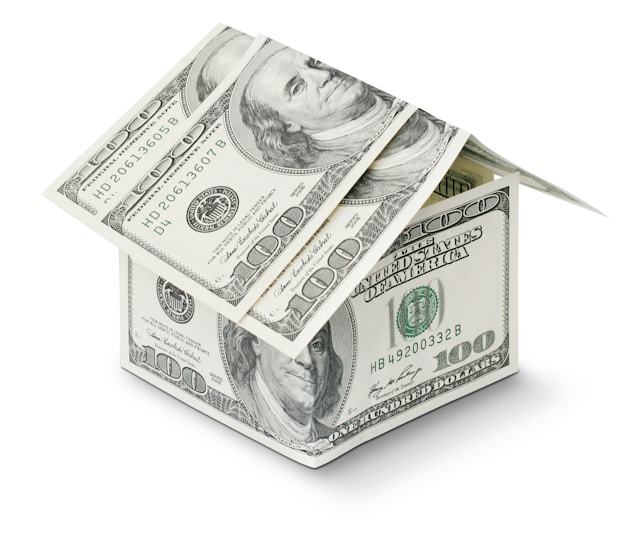As we delve deeper into the financial year of 2023, it’s crucial for landlords in the UK to keep abreast of the latest tax regulations and how they impact their rental property business. This comprehensive guide will shed light on the important tax considerations that landlords need to be aware of, ranging from rental income tax to capital gains tax, business rate, and allowable expenses that can be claimed.
Understanding Rental Income Tax
It’s essential to recognize that the income you receive as rent from your tenants is subject to taxation. The amount you will pay in tax will depend on several variables, including the total amount of your rental income and other personal income sources.
Sujet a lire : Is it better to buy a new-build or an existing property in the UK housing market?
As a landlord, it’s important to understand the different tax bands that apply to your rental income. For 2023, the basic rate is 20% for income up to £50,270, while the higher rate of 40% applies to income between £50,271 and £150,000. If your income exceeds £150,000, you will be taxed at the additional rate of 45%.
Keep in mind that these rates are applied to your total, taxable income – not just your rental income. This includes earnings from employment, pensions, and any other investments.
Lire également : How to protect your UK property investments from potential housing market crashes?
Allowable Expenses for Landlords
An essential aspect of the taxation process for landlords revolves around the concept of ‘allowable expenses’. These are the costs that you incur in the day-to-day running of your rental business, and they can be offset against your rental income to reduce your overall tax liability.
For the 2023 tax year, landlords can claim a wide range of expenses, including:
- General maintenance and repair costs.
- Property insurance.
- Mortgage interest (although restrictions apply).
- Utility bills (if paid by you).
- Legal fees for lets of a year or less, or for renewing a lease of less than 50 years.
- Services, including the costs of cleaners and gardeners.
- Other property expenses, such as council tax and services charges.
However, it’s important to note that ‘capital expenses’ – those that increase the value of the property, such as an extension or renovation – are not typically considered allowable expenses.
Navigating Capital Gains Tax
When it comes to selling a rental property, another tax consideration that comes into play is the Capital Gains Tax (CGT). This is a tax on the profit you make when you sell something (an ‘asset’) that has increased in value.
As a landlord, if you sell a property that is not your main home and it has increased in value, you will be liable to pay CGT on the profit. For the 2023/2024 tax year, the tax-free CGT allowance is £12,300. This means you only pay CGT on gains above this allowance.
The rate of CGT you’ll pay depends on your overall taxable income. If you’re a basic rate taxpayer, the rate is 18%. If you’re a higher or additional rate taxpayer, it’s 28%.
Understanding Business Rates for Rental Properties
In some cases, landlords may need to pay business rates instead of council tax. This will typically be the case if you rent out multiple properties, or if your tenants are businesses rather than individuals.
The exact amount you’ll pay in business rates will depend on the ‘rateable value’ of your property, as determined by the Valuation Office Agency (VOA). The rateable value is an estimate of the open market rental value of a property.
In 2023, the standard multiplier used to calculate business rates is 51.2 pence in the pound for properties with a rateable value of £51,000 and over, and 49.9 pence for properties with a rateable value under £51,000.
Limited Companies and Property Taxation
Finally, it’s worth considering the potential benefits of setting up a limited company for your rental properties. Owning rental properties through a limited company can offer significant tax advantages, particularly for higher-rate taxpayers.
One of the major benefits is the way profits are taxed. Corporation tax is charged at a flat rate of 19% in 2023 – significantly lower than the higher income tax rates. Additionally, mortgage interest can be fully deducted from rental income within a limited company structure, whereas there are restrictions for individual landlords.
However, transferring properties into a limited company might incur stamp duty and CGT, so it’s important to take advice before making this decision.
This comprehensive guide has, hopefully, provided you with a thorough understanding of the key tax considerations for UK landlords in 2023. Being armed with this knowledge will enable you to navigate the complex tax environment more effectively, potentially saving you a significant amount of money and headache in the long run. But remember, tax law is complicated, and it’s always worth consulting with a professional to ensure you’re paying the right amount and taking advantage of any allowances or reliefs you’re entitled to.
The Stamp Duty Land Tax and Landlords
Stamp Duty Land Tax (SDLT) is a tax paid by UK residents when purchasing a property over a certain price. It is an imperative aspect of buying properties for the purpose of letting and landlords must take this into consideration when budgeting their expenses.
As of the 2023/2024 tax year, SDLT is payable on properties bought for more than £125,000. However, landlords and second home buyers are required to pay an additional 3% on top of the standard SDLT rates. This means, if you buy a property for £150,000, you will pay a 3% SDLT on the first £125,000 and 5% on the remaining £25,000. It’s important to note that these rates are cumulative and can increase the overall purchase price significantly.
It’s also worth mentioning that there are certain exemptions and reliefs available to landlords. For example, if you are buying a property in a ‘disadvantaged area’, you may be eligible for relief. Additionally, if the property you are buying is a mixed-use property, you will pay a lower rate of SDLT. On the other hand, if the property is being purchased through a limited company, the SDLT rates may be higher, so it’s important to factor this in when deciding whether to set up a company for your rental properties.
Filing your Self-Assessment Tax Return
Every year, landlords must complete a Self-Assessment tax return to declare their rental income and pay any tax owed. The process involves reporting all of your rental income and allowable expenses, and calculating your tax bill accordingly.
You will need to keep accurate records of all of your rental income and expenses throughout the tax year. This includes things like rent receipts, invoices for property repairs, insurance policies and mortgage statements.
The deadline for paper tax returns is 31st October following the end of the tax year, and for online returns, it’s 31st January. If you miss this deadline, you will face a penalty starting from £100. It’s also worth noting that if your tax return is more than three months late, you will be charged an additional £10 per day, up to a maximum of £900.
If you’re unsure about anything, it’s recommended to seek professional advice. A tax adviser or accountant can help you understand what you can and can’t claim for, ensure your tax return is correct, and help you avoid any potential penalties.
Conclusion: Preparing for Tax As a Landlord
To conclude, it is clear that being a landlord in the UK comes with numerous tax considerations. It ranges from understanding how rental income tax, capital gains tax and business rates apply to your situation, to knowing what allowable expenses you can claim to minimise your tax liability. Additionally, knowing how to correctly fill in your self-assessment tax return to avoid penalties and understanding the impact of Stamp Duty Land Tax on your investments are pivotal.
Also, consider the advantages and potential drawbacks of setting up a limited company for your rental properties. While it can bring significant tax benefits, it may also result in higher Stamp Duty Land Tax.
Regardless of your situation, it’s crucial to keep abreast of the latest tax laws, rates, allowances and reliefs. Keep records of all income and expenses related to your rental properties and seek professional advice if needed. Remember, staying ahead of the game can save you a significant amount of money and headache in the long run. After all, the world of tax for landlords can be complicated, but with careful planning and execution, it can be navigated successfully.






